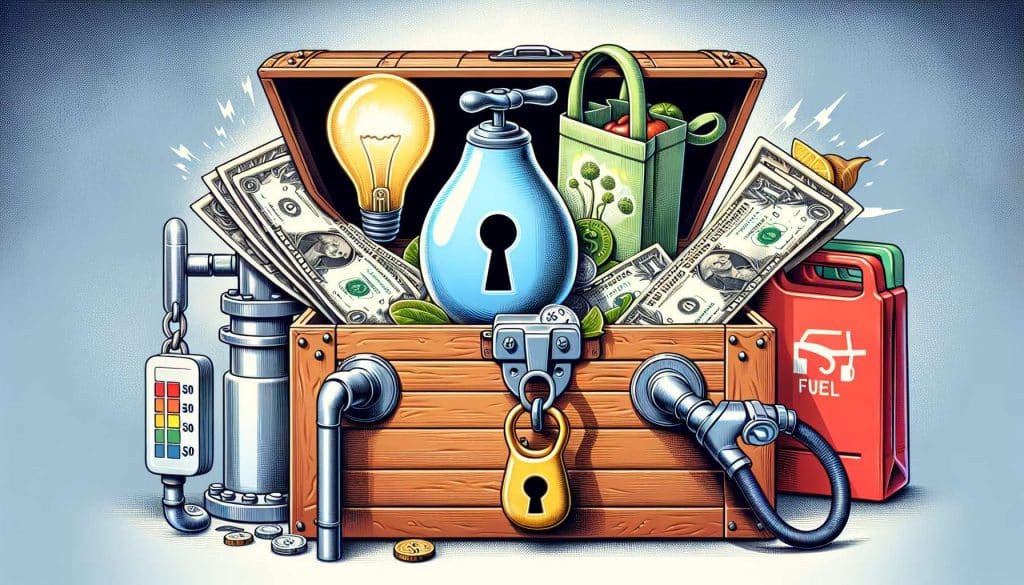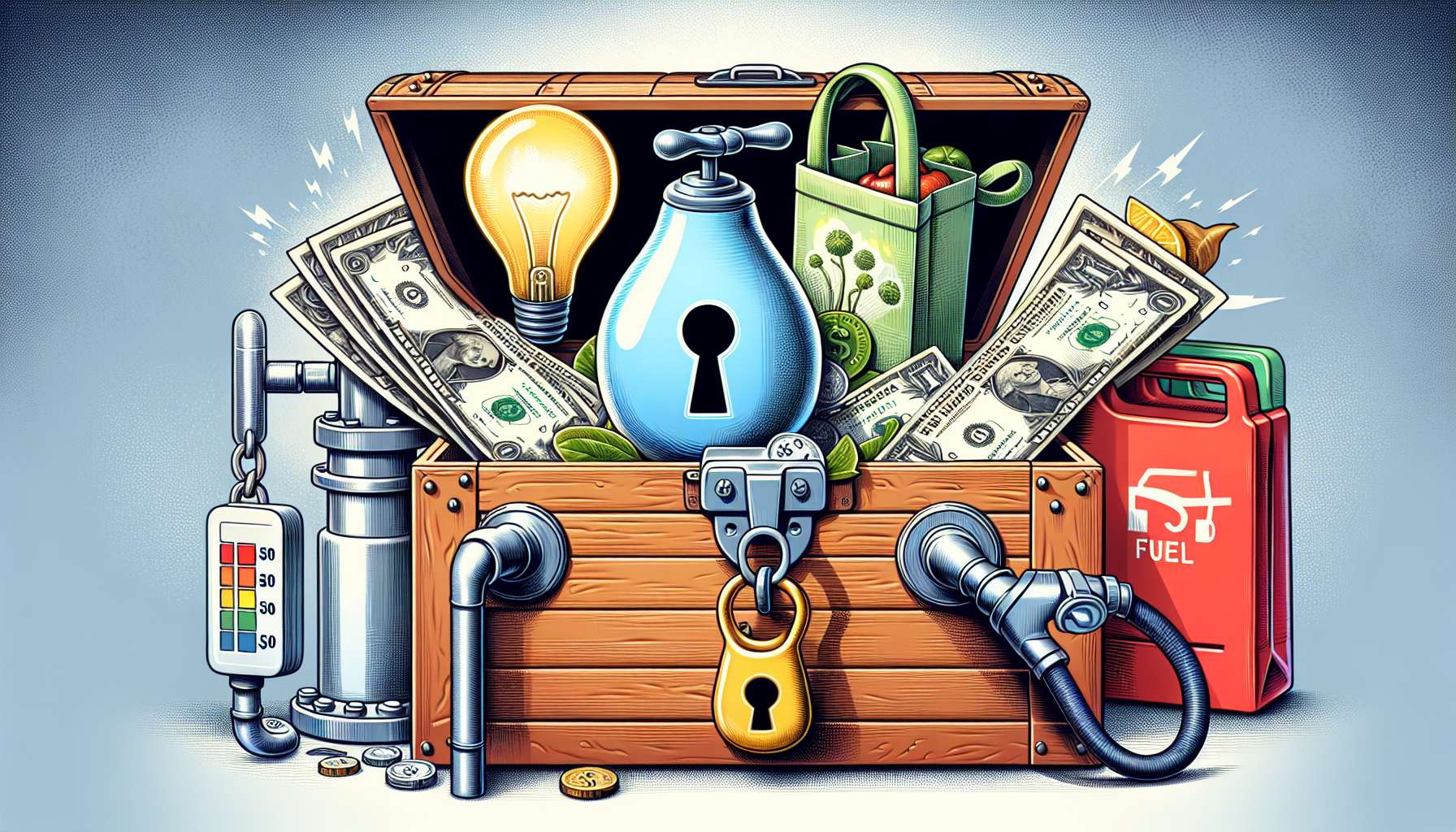Maximize Your Savings: Simple Strategies for Reducing Household Costs Now


Maximize Your Savings: Tips for Cutting Household Costs in the US
Anúncios
Living in the United States can present specific financial hurdles, and with the rising cost of living, many individuals are keen to learn effective ways to reduce expenses without giving up their lifestyle. If you’re determined to discover how to lower household costs and increase savings, this guide is for you. Here, we delve into actionable and practical habits that can ensure more money stays in your pocket.
From everyday hacks to strategic financial planning, these insider tips aim to make you financially savvy. Knowing how to manage your expenses doesn’t just bolster your savings. It also enables you to live a more fulfilling lifestyle without constant financial stress hanging over your head. By adopting smarter spending habits, you’ll gain control over your finances and realize your long-term financial goals.
Learning how to cut costs requires a balance of understanding your current spending habits and implementing new strategies. By focusing on essential expense categories and making conscious adjustments, you can markedly improve your financial standing. This article will provide guidance, from finding areas to reduce energy costs to more mindful shopping decisions and transportation alternatives.
Anúncios
Before embarking on this savings journey, gaining insight into your spending behavior is essential. Start by evaluating your expenses, identifying areas for improvement, and setting realistic goals. Use budgeting tools like Mint or YNAB to track where your money goes every month. This analysis will draw a clear line between necessities and luxuries and help you allocate funds wisely.
Implementing energy-saving habits at home can make a noticeable impact on your utility bills. Consider swapping regular bulbs for LEDs to cut down on electricity use or installing a smart thermostat to better manage your home’s climate control. Reducing water usage by promptly fixing leaks and using efficient fixtures can also result in substantial savings over time.
Grocery shopping represents a substantial part of monthly expenses, but planning smart can help mitigate costs. Craft a weekly meal plan to reduce impulsive buys, use coupons, and consider buying bulk items from places like Costco. These strategies can lead to a significant reduction in expenditures without compromising on quality or nutrition.
Anúncios
Your transportation choices also play a significant role in household spending. To lower these costs, explore options such as carpooling with colleagues, using public transport, or even biking for shorter distances. Regular maintenance of your vehicle prolongs its life and keeps unexpected repair costs at bay.
Shopping for clothing and goods shouldn’t strain your budget. Consider exploring thrift stores or online marketplaces for second-hand deals. Embrace a capsule wardrobe to minimize unnecessary purchases, focusing instead on quality items that offer durability and longevity.
Overview of Strategies for Reducing Costs
Prudent financial management starts with a strategic approach to daily expenses and culminates in smart financial planning. Establishing efforts to limit unnecessary spending and prioritize saving can lay the groundwork for future financial stability. Consider setting up an emergency fund, automating savings transfers, and negotiating recurring bills for comprehensive cost-cutting.
A well-rounded financial strategy incorporates both spending controls and investment for growth. Building a secure emergency fund allows you to manage unexpected expenses without disrupting your budget. Automation of savings deposits ensures consistent growth over time and underscores the importance of paying yourself first.
Negotiating your utility services and other recurring bills can reveal opportunities for extra savings. Engage with service providers to see if reduced rates or inclusivity of additional services can be arranged. Investment in low-cost index funds or consulting with a financial planner can further ensure that your money grows responsibly over time.
Finally, understanding the characteristics of financially literate individuals can help set a standard for your financial decisions. By adopting these traits and implementing similar habits, you can follow a more secure financial path.
Characteristics of Smart Financial Habits
- Tracking and analyzing monthly expenses effectively.
- Recognizing and prioritizing essential spending over luxuries.
- Developing disciplined budgeting and spending plans.
- Practicing mindful shopping and making data-driven purchase decisions.
- Proactively managing savings and investments.
Benefits of Smarter Financial Habits
Incorporating smart financial management into your daily routine can substantially improve your quality of life. Through conscious spending and strategic planning, you can achieve a greater level of financial confidence, reduce stress associated with money, and open opportunities for personal and financial growth.
One of the most noticeable advantages is the peace of mind that comes from having financial flexibility. Developing a cushion of savings allows you to face unforeseen expenses without jeopardizing your lifestyle or entering debt.
Smart financial habits also enable you to pursue personal aspirations, like home ownership, travel, or retirement, on a solid fiscal foundation. You avoid the common pitfalls of overspending and can maintain a balanced lifestyle.
Engaging in these practices fosters an understanding of long-term goal setting. Rather than seeking immediate gratification through costly purchases, prioritize investments in experiences or goods that add true value. By executing a personal finance strategy, you’re better positioned to make informed choices that offer long-term benefits.
- Stable financial health contributes to overall well-being.
- Increased savings lead to opportunities for investments and growth.
- Debt reduction minimizes stress and enhances focus on life goals.
- Financial literacy empowers better decision-making for the future.
- Smarter management translates to a higher quality of life.





